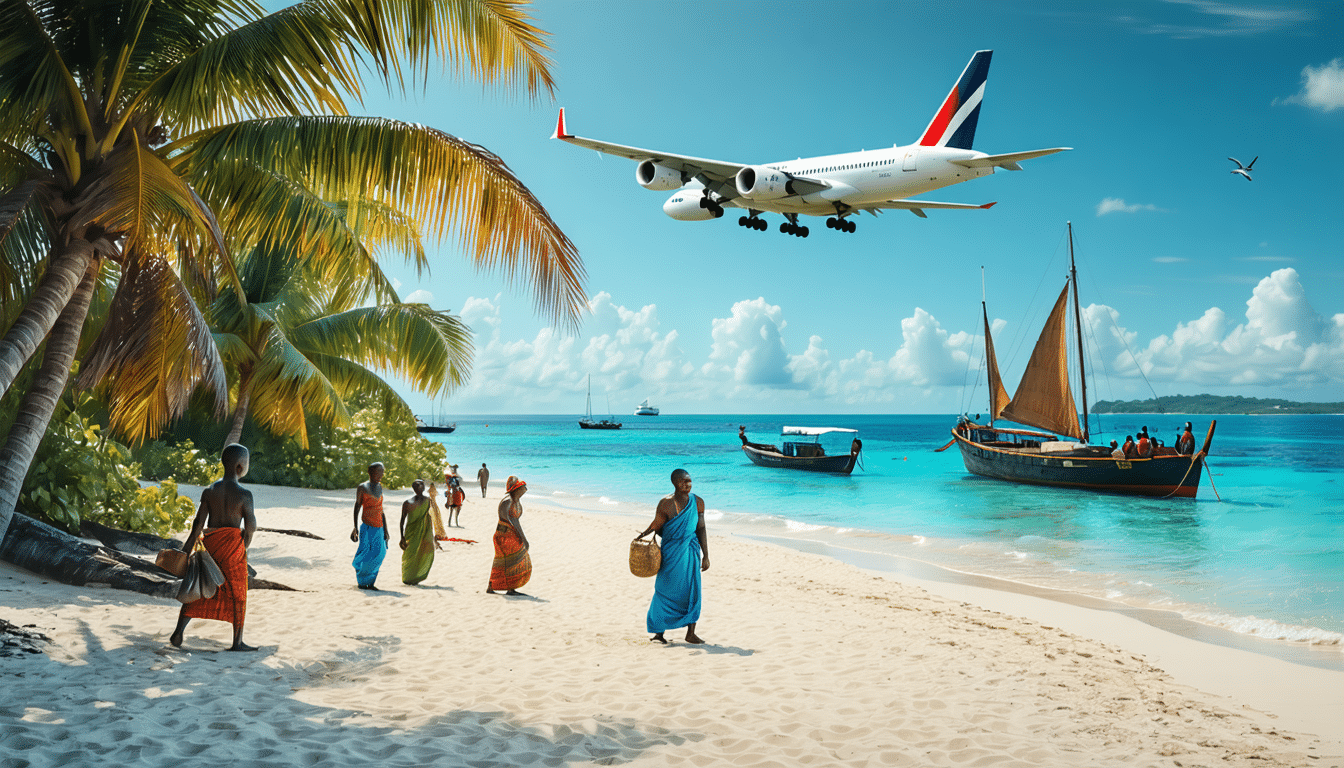The decision of Air France to suspend its direct link to the tropical paradise of Zanzibar has raised serious concerns among stakeholders in the Tanzanian tourism sector. Scheduled to take place from March to May 2025, this interruption calls into question the attractiveness of this destination favored by travelers, already facing competition from neighboring countries like Kenya. Tourism professionals fear that this flight absence will not only harm beach holidays but will also impact the sought-after safari tours for adventurers in search of authenticity.
At the beginning of 2025, Air France will temporarily suspend its direct route between Paris and Zanzibar. This decision raises significant concerns within the Tanzanian tourism sector, which fears a decline in the destination’s attractiveness in favor of neighboring countries, particularly Kenya. Industry professionals are questioning the effects of this suspension as well as potential alternatives for travelers wishing to discover this tropical island in the Indian Ocean.
The stakes of a direct air service #
The direct air service represents a major asset for any tourist destination. It simplifies access to the destination and allows for attracting a clientele seeking comfort and convenience. Frédérique Duvignacq, a representative from the receptive agency Soaring Flamingo, highlights this fact by stating that “a direct air link enhances the appeal of a destination.” Thus, travelers who are often in a rush or looking for a non-stop journey may turn to other less complex options to reach like Kenya or South Africa.
A flight schedule impacted by the season #
The suspension of the direct link will occur between March 22 and May 25, 2025, a period that coincides with the rainy season in Tanzania, which is traditionally less frequented by tourists. Although these months are often less favorable for visits, observers believe that this cancellation can have longer-term consequences on off-season tourism. Vacationers who choose to visit Zanzibar during this time for favorable rates might abandon their trip due to this program change.
A new constraint for travelers #
In addition to this delicate situation, a new requirement has been imposed on visitors to Zanzibar. Indeed, since October 1, travelers must take out insurance with a local insurer, costing 44 dollars, even if they already have travel insurance. These new constraints raise concerns among industry professionals that it may further discourage travelers, exacerbating the impact of the suspension of the direct link.
Travel alternatives to Zanzibar #
For those still considering traveling to Zanzibar during the suspension period, it will be necessary to opt for connecting flights, which significantly prolongs travel time. For example, the Paris-Zanzibar route with a transfer in Nairobi via Kenya Airways can take about 13h55, compared to 9 hours for a direct flight. Other options include connections with Ethiopian Airlines, Turkish Airlines, and Qatar Airways, but each of these options imposes additional travel time and multiple connections.
Predictable impacts on the tourism sector #
The combined effects of the suspension of the direct link and the new requirements could cause a significant upheaval in the Tanzanian tourism economy. Players in the tourism industry are concerned about Zanzibar’s ability to maintain its attractiveness in the face of growing regional competition. Losses for the tourism sector could manifest through decreased hotel occupancy, reduced bookings for excursions, and a loss of interest in safari tours, which are one of Tanzania’s main attractions.
À lire the classic and sports car show in the United Kingdom on June 7th and 8th, 2025
An uncertain future for Zanzibar #
It is undeniable that this suspension of the direct link will pose challenges for the destination. The local tourism sector must now consider strategies to overcome this unfavorable situation. Promoting attractive offers to encourage visitors to choose Zanzibar over other destinations, along with incentives for off-season visits, may be measures to consider. The sustainability of tourism in Zanzibar may depend on the ability of industry players to quickly adapt to these changes.


